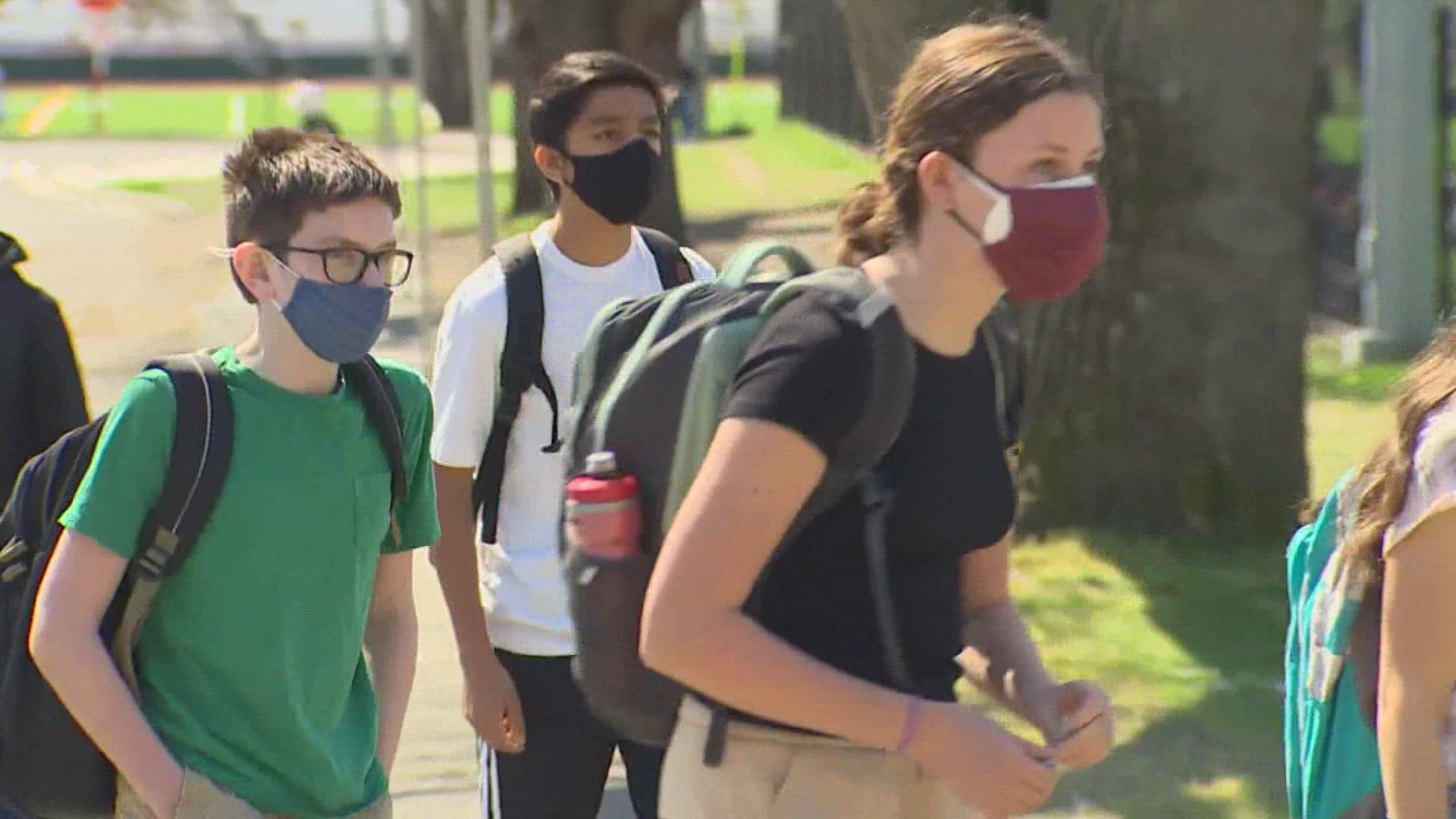SEATTLE — Child anxiety is on the rise as more students return to classrooms after a year of virtual learning.
"I wish I could clone my team 17 times over in order to even closely match the demand that we're seeing come through from the community," said Kendra L. Read, Ph.D.
Read runs the Mood and Anxiety Program at Seattle Children's hospital. She said the hospital normally sees fewer children during the summer months, but that wasn't the case this year as more kids worry about their health, academic well-being and social interactions.
“It's kind of like if you haven't been to the gym in a year and a half, like we're all gonna feel a little out of practice, in the social situations,” said Read, who stressed the importance of communication between families. “Just getting through an in-person school day with all of the stimulation, it's gonna feel really tiring.”
Read advised parents to normalize anxiety by talking about their own worries and how they handle stressful situations. She also suggested practicing going to school, packing a lunch, wearing a mask and even messing up.
"We can be aware of how our kids are thinking about situations, that helps us design opportunities to practice doing things that are likely to disprove some of those anxious thoughts,” explained Read. “It also gives us opportunity for correcting misinformation.”
Messing up, for example, could mean spilling cereal in the kitchen or saying “good evening” instead of “good morning” to see how your child reacts to making a mistake.
With so many more children struggling with back-to-school anxiety, Read is concerned some families might not be able to get the help they need.
Seattle Children's has made many mental health resources free and open to the public to help families navigate in-person learning.
It's also an opportunity for parents to have more open communication with school professionals.
Darcy Newby is a licensed therapist and school counselor at the Overlake Specialty School. She said many of the symptoms of anxiety mimic the symptoms for COVID -19, adding to the concern.
Newby said it's not unusual for students to complain of a stomach ache, sore throat or cough when faced with anxiety.
“Anxiety will usually peak right before a transition, but then often will drop down lower once kids get there,” said Newby. “So, being able to call the office and say, 'Hey, Billy had a tummy ache this morning. Has he shown up and complained about that yet? How's he doing?'" could help assess where your child is that day and manage how they feel the next.”
While coping with anxiety is important, both Newby and Read agreed normalizing anxiety as something that happens to everyone is as essential as pencils and paper.

